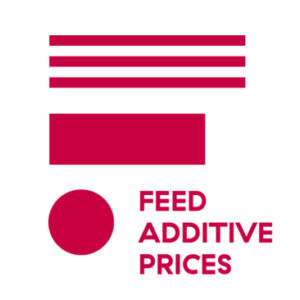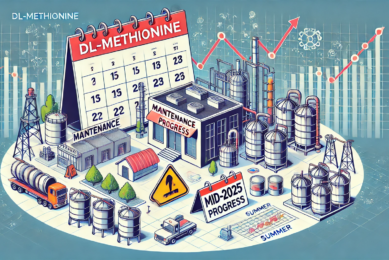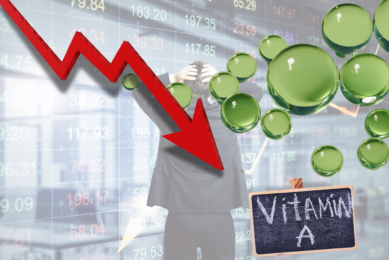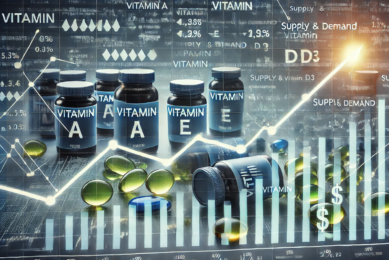Vitamin E and B3 active in several regions

One of the main vitamin manufacturers in Europe recently announced a production line check / maintenance for their vitamin E and Vitamin A product. Learn more in this week’s feed additives snapshot (week 12).
Some increased activity and small price increase is seen for vitamin E in several regions like the US and Europe. Vitamin A1000 markets have not reacted to far. Small price increases have been announced for vitamin B3 (Niacin), as suppliers say to face increased raw material costs. Vitamin B1 has also firmed in price in several regions. Other vitamins have been stable, with a very quiet market.
In partnership with Feed Additive Prices
Vitamin E 50%
With the recent announcement of one of the major manufacturers, that they will carry out a production line check/maintenance, the market reacted a bit and became more active. Prices are slightly firmer on average. A decent cover was already taken in the previous weeks, so not a lot of new additional demand is seen currently. Suppliers continue to try to increase prices in an attempt to move away from the current price level. Most of Q2 is contracted and some cover into Q3 is seen as well.
Vitamin A 1000
One of the main manufacturers in Europe announced that they will carry out a production line check/maintenance for several weeks. Initially, there was a short reaction from the market, but soon it seemed business as usual. The market is relatively quiet and prices seem stable in most regions at the moment. Recently, one of the main vitamin A1000 manufacturers has announced to sell of their vitamin business. So far, that has not impacted the short-term market. A portion of Q2 has been contracted.
Vitamin D3 500
No significant changes are seen in the market compared to previous weeks. Local stock levels are said to be very low, but at the same time, any significant new demand is also not seen. Prices seem to be stable in most regions. Q2 is partly contracted as buyers see limited further price decline potential.
Vitamin B2 80%
Several suppliers have attempted recently to increase prices or have stopped offering. But no changes are seen in the actual market transactions. The vitamin B2 market remains very quiet and stable. Prices in Asia are still relatively low, while prices in Europe are higher and stable and in the US as well, compared to that. A portion of Q2 is contracted.
D-Calpan
No significant market activity is reported and there still seems to be ample supply with relatively low new demand in most regions. The price decline has stopped for now and the market has bottomed out at a very low level. Already a decent cover ahead is taken into Q2, as buyers estimated risks and the chance of even lower prices and wanted to secure some supply.
Vitamin B3
Some suppliers have announced price increases to compensate for higher raw material costs, as they say. Some buying activity was seen as a result of that, but nothing significant. Prices have increased a bit in some regions. Availability seems to be good in most regions. There was already some cover taken into Q2 some time ago when prices stabilized at a low level.
Biotin
Overall, the biotin market has been stable for quite some time now, with an occasional small step-down in price. Prices remain historically low and supply is ample. A portion of Q2 is contracted by now. In some cases, buyers took long-term contracts well into 2024, some of them also based on older contracts.
Vitamin C 35% mono
Suppliers are more proactively reaching out to buyers to look at Q2 and Q3 sales. At the same time, these suppliers are holding on to the current price level and no discounted prices are seen. Until now, no change in strategy from suppliers to keep prices up and increase them even further. Most buyers took long-term contracts when the price was low or when it started to increase. Q2 is largely contracted and in some cases, a large portion of 2024 as well, based on older contracts when prices were lower.











